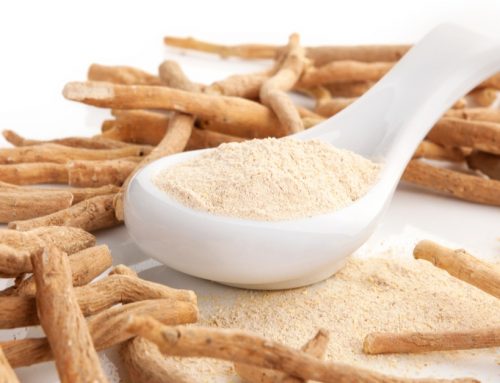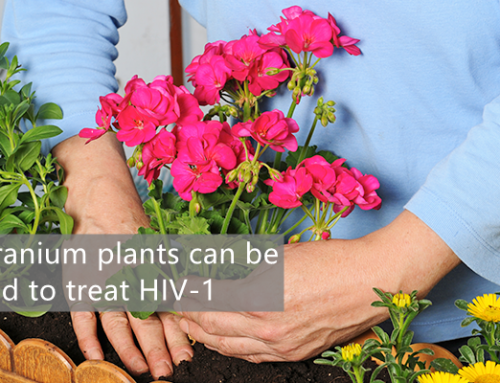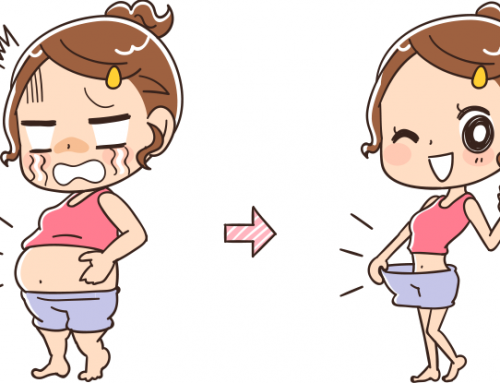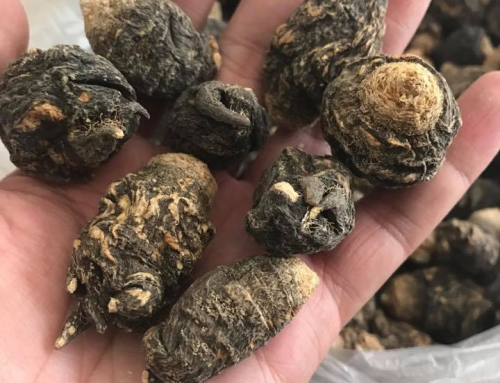Sexual Support
For men, especially those fighting prostate cancer and BPH, sexual health is a major concern as they grow older. The lack of sexual performance and loss of sex drive typically increases naturally as men age.
Almost half of all men experience impotence occasionally, according to Yousry Naguib, manger of new product development, Soft Gel Technologies, Inc. (SGTI), Los Angeles, CA. “Impotence is defined as a consistent inability to achieve or sustain a penile erection sufficient for sexual intercourse,” he explained. “Aging is most often associated with impotence. About 5% of men at the age of 40, and 15-25% of men at the age of 65, experience impotence. However, impotence is treatable in all age groups.” SGTI offers an all-natural herbal sexual enhancer, Amorin, which contains a proprietary blend of herbs like horny goat weed, yanhusuo, yohimbe and tribulus.
The problem with the sexual function ingredients category, according to Mr. Naguib, is that consumers want fast results, which can be achieved with something like Viaga. “When you tell people they have to take a product for a month or two, and they may or may not see improvement, they get disappointed and it turns them off. People always want to compare things to Viaga, so unless there is a comparison study, this will remain a marketing challenge,” he said. “Another thing that hurts the category is the amount of outlandish claims made on products, which make it hard to gain consumer confidence.”
The biggest trend in the sexual function ingredients market is that companies are moving away from virility supplements with nasty side effects, according to Pharmachem’s Mr. Skop. “About a year ago companies started moving more toward ingredients with fewer side effects,” he said. “Most larger companies are shying away from controversial men’s ingredients like yohimbe, in favor of ingredients that are more likely to achieve the goal safely.”
Alex Moffet, president, Renaissance Herbs, Inc., Chatsworth, CA, also discussed the category’s move towards safer ingredients. “Sexual function ingredients constitute one of the strongest categories in the industry, but it wasn’t long ago that the only aphrodisiac herb with any western-based clinical research to back it up was yohimbe, which became the subject of several placebo-controlled clinical trials demonstrating its efficacy. Since side effects of yohimbine, the major active, became apparent, including high blood pressure, headache, anxiety, diarrhea, dizziness and others, the herb has been largely replaced with safer botanicals for sexual health, ” he said. “Today, the category has evolved from herbal supplements without any placebo-controlled clinical trials to back them up, to the present where a growing number of traditional treatments used for sexual function are finally undergoing quality research.”
There are several factors contributing to the attention and growth of the sexual function ingredients market, according to Mr. Moffet, including an aging population, a growing world market for botanicals, bioassays that allow herbs to be more readily screened for potential sexual activity-enhancing properties, phytochemical methodologies that allow for rapid characterization of active constituents and the growing need for and awareness of less costly ways to optimize one’s own well-being. “Taken together, these factors foretell a steadily growing market that will become increasingly competitive as research distinguishes the most effective and beneficial botanicals in this category,” he said.
Horny Goat Weed. Horny goat weed is a time-tested aphrodisiac that is known in China as Yin Yang Huo.
This name comes from the Chinese myth about an animal called yin yang, which is reported to have one hundred sexual climaxes every day after taking the herb. Known also as epimedium, because, explained Mr. Naguib, it is akin to a plant found in the ancient southwest Asia kingdom of Media, now a part of Iran, it has been shown to increase libido in men and women, as well as improve erectile function in men. Horny goat weed was first described in ancient classical Chinese medicinal texts and today holds an important place in Traditional Chinese Medicine (TCM) . Used by practitioners for over 2000 years, horny goat weed, which grows most abundantly at higher altitudes, contains a variety of flavonoids, polysaccharides, sterols and an alkaloid called magnaflorine in its leaves, however, its mechanism of action is not known for sure.
According to Mr. Naguib, research has shown that animals that took Epimedium breviconum had an elevated level of adrenaline, noradrenaline, serotonin and dopamine. “The pro-sexual effect of the herb was ascribed to the increased level of dopamine, which helps to release the leutenizing hormone from the pituitary gland, which in turn stimulates the testes to produce testosterone,” he said.
Going into further detail about horny goat weed’s mechanism of action was Mr. Moffet. “Based on activity studies in animals, horny goat weed may be contributing to healthy sexual function by enhancing peripheral circulation, and through androgenic, vasodilatory and neurological activities involving the potentiation of various neurotransmitters, including dopamine, norepinephrine and serotonin,” he explained. “Among its active constituents, a flavonoid known as icariin was shown to relax the smooth muscle of the corpus cavernosum, an effect known to facilitate an increase of blood flow in the penis. Icariin was recently shown to significantly inhibit cyclic nucleotide phosphodiesterases , an action that would spare cyclic GMP, which is needed to signal smooth muscles of the penis to relax. In rabbits, icariin produced significant increases in cGMP levels of the clitoris and the corpus cavernosum of the penis.”
Yohimbe
Yohimbe is a popular herb coming originally from South Africa, and is widely known for its aphrodisiac properties. Yohimbe comes from the inner bark of the tropical West African tree, Coryanthe Yohimbe. Natives of South Africa have used the bark of the tree for centuries to enhance sexual performance and pleasure. Yohimbe has been shown in several double-blind studies to help treat men with impotence.
However, yohimbe is not recommended for excessive or long-term use, according to Mr. Naguib, and it may potentiate MAO inhibitors and hypotensive drugs. “Yohimbe has received some negative press for possible side effects, which could result in a rise in blood pressure if not used as recommended,” he said. “The safe daily dose of the active component in yohimbe-yohimbine-is 15-30 mg.”
Tribulus
Tribulus terrestris has been gaining in popularity for its ability to raise testosterone levels. According to Brian Alexis, president, Pharmabul, Santa Monica, CA, tribulis has been used for centuries in ancient Greece, India and the Balkans as a medicinal herb for treating a variety of health problems, including loss of libido, impotence, infertility, loss of muscle strength, heart problems and immune system ailments. Tribulus terrestris is sold under the trademark Trilovin 250 by Pharmabul. Outside of Bulgaria, only Pharmabul has the scientific background and trade rights for the development of the Bulgarian formula.
Renaissance Herbs’ Mr. Moffet said that clinical studies on the sexual activity-enhancing effect of tribulus have shown that an extract of the herb standardized to contain protodioscin, a saponin constituent, improved libido in men with impotence due to various causes; libido in women with menopausal symptoms; and sperm motility in infertile and subfertile men.
Going into further detail, Mr. Alexis said the active phytochemicals in Bulgarian Tribulus terrestris might treat various sexual disorders and regulate sexual energy levels and strength by increasing the percentage of free testosterone levels in men. “Studies in Bulgaria have shown Trilovin to have considerable effects on the serum levels of the luteinizing hormone and the follicle-stimulating hormone (FSH),” he said.
In one study involving 59 men, ages 22-67, suffering from a range of sexual dysfunctions, Trilovin was prescribed three times daily, totaling 750 mg per day. All of the men were followed for a minimum of 90 days, and in cases of severe dysfunction or sterility, up to six months. An increase of sexual desire and fantasies, as well as sexual self-confidence, were reported in almost all of the patients. The subjective experience of pleasure, joy and satisfaction was reported in 80% of the men; erection improved in over 75% of the men; and the duration of intercourse before ejaculation was prolonged in 25% of the men.
Maca
Maca, or Lepidium meyenii, is a plant that grows in Peru’s Andean mountains at altitudes of more than 10,000 feet and has been used for centuries by native Peruvians for both nutrition and medicinal purposes. During the Incan Empire, maca was cultivated for use as both a nutritious food and for its enhancement of energy and sexual function. Today, as a nutritional supplement, maca has been gaining increasing attention, as research touts the plant’s ability to enhance overall energy, strength and libido, as well as the fertility and sexual performance of men and women.
According to research conducted by Qun Yi Zheng, president, and his colleagues at Pure World Botanicals, South Hackensack, NJ, maca contains macamides and macaenes, the novel compounds believed to impart maca’s sexual enhancement properties. Pure World markets MacaPure, a concentrated extract of maca standardized to contain 0.6% macamides and macaenes. Through a series of animal experiments, researchers at Pure World have demonstrated that rats fed MacaPure extract increased their energy and stamina. The rats also showed an increase in their levels of sexual activity compared to those that were not fed MacaPure.
Dr. Zheng said that because maca is a relatively new nutraceutical, its mechanism of action is not well known, but the number of studies conducted on maca are growing and sales figures over the past few years reflect maca’s growth in the market. “Since 2000, 68 studies have been conducted on maca, which support its ability to improve fertility and sexual function,” he said. “Additionally, in 2000, maca sales were below $1 million, however, between 2002 to 2003, sales grew to $20-$30 million.”
According to Ellen Schutt, marketing director, RFI Ingredients, Blauvelt, NY, the market for maca is growing, however, it must overcome some hurdles in order for growth to continue in the future. “I believe awareness of maca is growing in the U.S., but there are still challenges to overcome in terms of the stigma attached to the ‘sexual function’ category,” she said. “I believe that as more research is done on the ingredient, the level of usage will increase as consumers become more comfortable with the scientific basis upon which this ingredient is based.”






